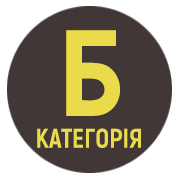MYTHOPOETICAL ANALOGIES IN THE FICTION OF HALYNA PAHUTIAK AND JYRKI VAINONEN
DOI:
https://doi.org/10.32782/folium/2024.4.30Keywords:
neomythologism, intertext, mythopoetics, typological parallels, mythologem, topos, archetypeAbstract
The study considers neomythological strategies and dominants in the fiction of the Ukrainian writer H. Pahutiak and the Finnish author J. Vainonen. It is emphasized that H. Pahutiak often employs oniric visions as separate intertexts, which allow submerging in the spheres of the collective unconscious, and is also inclined to interpret the current problems in mythological time and mythological space. This fact makes us pay attention to J. Vainonen’s interest in the unconscious as a moving power for writing his novel «The Dumb God», in surrealistic, mystical and oniric dimensions. Such coincidences in the authors’ mythical thinking incentivized us to search for typological analogies in interpretation of mythological motives and figures by the unique representatives of the Ukrainian and the Finnish literatures, and also the writers’ originality in creation of the neomythological picture of the world in their books. It is highlighted that the topicality of the research theme is determined by a lack of scientific publications dedicated to comparative analysis of the literary works by H. Pahutiak and J. Vainonen. The research into the fictional prose of the Ukrainian and the Finnish writers allowed finding that in the texts of H. Pahutiak and J. Vainonen there are apparent mythopoetical analogies that emerge as typological coincidences on the plot, character, motif and stylistic levels. Both authors resemanticize ornithological figures related to the tragic modus, use gothic elements in modelling their chronotopes, the motif of going to the other world which correlates with the female characters possessing demonological semantics, interpret symbolism of the stone mythologem, associate mystical topoi of parallel worlds with the motif of magic music and reactualize creation myths, whose primordial basis is the egg. However, H. Pahutiak is more inclined to mythologize the topoi related to her private geography, whereas the Finnish writer J. Vainonen mysticized a French region in his novel «The Dumb God».
References
Бокшань Г. Міфосвіти романів «Зачаровані музиканти» Галини Пагутяк і «Німий бог» Юркі Вайнонена. Діалог мов – діалог культур. Х Міжнародна наукова інтернет-конференція з україністики. Мюнхен : Readbox Unipress. Open Publishing LMU, 2019. С. 262–269.
Вайнонен Ю. Німий бог. Київ : Видавничий Дім «Комора», 2018. 176 с.
Мусій В. Мотив двійництва у творах сучасної літератури (Ю. Вайнонен «Німий бог», Л. Дереш «Спустошення», Ґ. Трибусон «Віденські гриби»). Синопсис: текс, контекст, медіа. 2023, 29 (2). С. 102–107.
Пагутяк Г. Гірчичне зерно : повість. Гірчичне зерно : повісті. Київ : Радянський письменник, 1990. С. 5–122.
Пагутяк Г. Захід сонця в Урожі. Захід сонця в Урожі : романи, повісті, оповідання та новели. Львів : ЛА «Піраміда». 2007. С. 7–61.
Пагутяк Г. Зачаровані музиканти. К. : Ярославів вал, 2010. 224 с.
Пагутяк Г. Кожен день інший : щоденник. Львів : ЛА «Піраміда», 2013. 192 с.
Пагутяк Г. Радісна пустеля. Записки Білого Пташка : романи; повість. Київ. : Український письменник, 1999. С. 79–114.
Пагутяк Г. Урізька готика. К. : Дуліби, 2009. 352 с.
Пагутяк Г. Уріж та його духи. Львів : ЛА «Піраміда», 2012. 120 с.
Українська міфологія / В. Войтович. Київ : Либідь, 2022. 662 с.
Юркі Вайнонен: «Більшість з моїх оповідань – це сни, яких я не бачив» (розмова з Богданою Романцовою). URL : https://lb.ua/culture/2016/09/07/344405_yurki_vaynonen_bilshist_z_moih.html [дата звернення: 18.03.2024).
Юркі Вайнонен: «Намагаюся знову навчитися писати» (розмова з Олександрою Бруновою). URL : https://rozmova.wordpress.com/2018/07/12/urki-vainonen-3/ (дата звернення: 18.03.2024).
Юркі Вайнонен: чим більшу порожнечу відчуваю після написання історії, тим кращою вона є (інтерв’ю з Аллою Костовською). URL : https://archive.chytomo.com/interview/yurkivajnonen-chim-bilshu-porozhnechu-vidchuvayupislya-napisannya-istoriii-tim-krashhoyuvona-ye (дата звернення: 18.03.2024).











